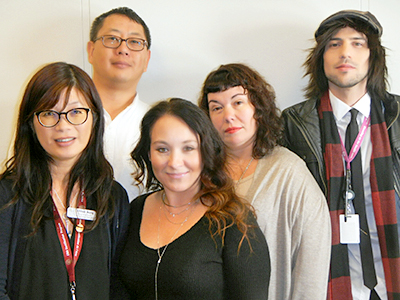
Sight and sound of family on video recordings may reassure patients and improve safety.
The reassuring presence of a trusted loved one makes every patient feel better. For patients affected by dementia, that familiar face may be a lifeline out of fear and confusion. But trusted family can’t always be there in person, so staff at Vancouver General Hospital (VGH) are seeing if iPads might fill the gap. Staff will use video recordings of family members and monitor if this has a positive impact on the behaviour of patients affected by dementia. Lillian Hung, a Vancouver Costal Health Research Institute researcher and clinical nurse specialist in Gerontology & Tertiary Mental Health at VGH, came up with the idea after reading about the use of iPad recordings in residential settings.
“We are always looking for innovative ways to do the best we can for this patient group. And we’re always looking for non-pharmacological solutions wherever possible. This technology may be a safe and low-cost way of helping our clients.”
The patients at VGH often come from a residential program that can no longer care for them safely. These patients might have mental health illness coupled with dementia so simple care interventions – like being dressed or taking medication – can be a stressful experience for them. That stress and fear can trigger responses, such as kicking and screaming at staff. Hung says these behaviours are physically and emotionally draining for both patients and staff.

Project manager Corrina Helmer says recruitment for the study is already underway and staff members are keen to try this new approach. “We’re hoping this iPad project will improve safety for both our patients and our staff.”
How will it work?
Each time staff need to intervene to care for a patient – helping them dress, take medication or eat their meals, for example – they will first play a recording of a trusted loved one reassuring the patient and urging them to be calm. The hope is that the sound and sight of a familiar loved one will reassure patients and make them feel secure.

Hung says she is looking forward to giving families more involvement.
"This approach puts the family in the driver seat. It relieves some of the burden people feel when they can’t be there all the time. Many of our patients have family far away so this technology may really help patients feel less alone. It could be a win-win for everybody.”
Hung and her colleagues are using a case study approach for the iPad project. They will enrol two patients and their families and analyze those results in-depth before rolling the project out to a larger patient group. All participation is voluntary and both staff and patients will be filmed to produce an educational program for training purposes. The research team will gather feedback from both families and staff and then publish the findings next year.


